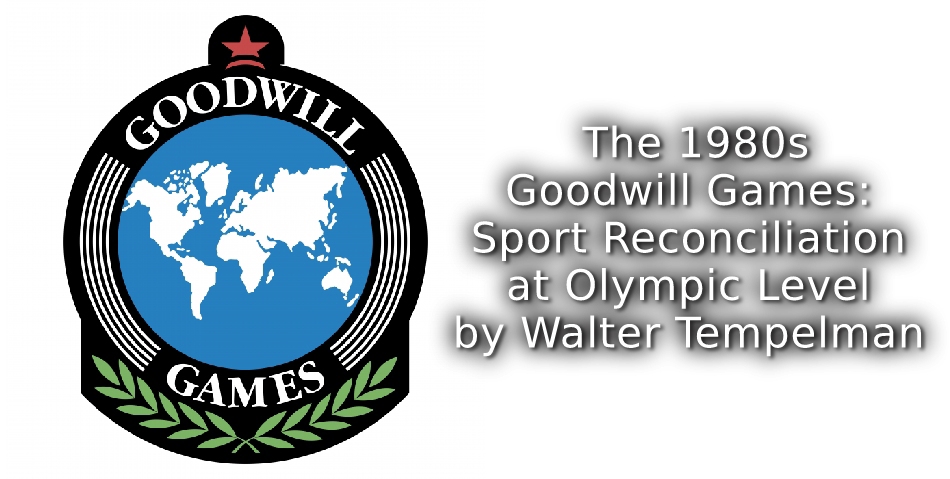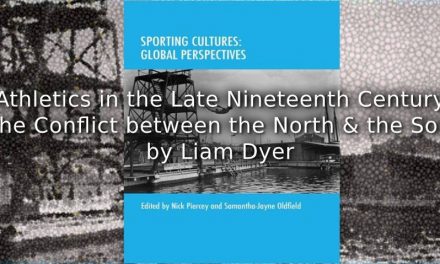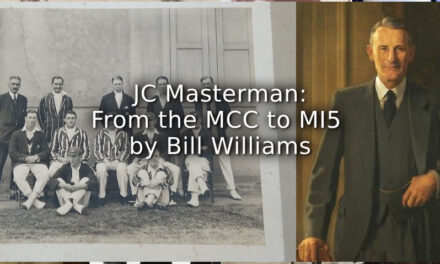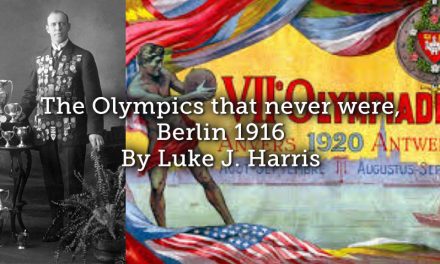Since the invasion of Ukraine in February 2022, Russian (and Belarusian) athletes have been banned from multi-sport events and are also not wanted in most international tournaments. Will Russian athletes ever return to the international stage? And how? Back to the Goodwill Games, 1986, Moscow, an event to bring the USA and the USSR back together in the international sports arena.
They skate with their hats on to the center of the ice floor at the Lenin Sports Palace in Moscow. On that Wednesday, July 16, 1986, the Russian Vladimir Kotin and the American world champion Debi Thomas form an occasional couple in figure skating at a demonstration dance at the Goodwill Games. On the first beats of Billie Jean by Michael Jackson, released four years earlier and quickly becoming iconic, the Soviet Union and the United States unite before the eyes of more than 10,000 spectators. A Russian and American moonwalk on ice. A better example of what the Goodwill Games stand for is hardly imaginable.
The Olympic eighties were characterized by boycotts. In 1980 the American delegation refused to come to Moscow, because of the invasion of Afghanistan by the Soviet Union. In 1984 there was a boycott of the Soviet Union, which ignored Los Angeles. The Olympic Games were heading for the third boycott in a row in 1988, which could well spell the bankruptcy of the Olympic movement. The Americans sprang into action, out of idealism and capitalism. “Two boycotts in a row. What the heck! We had to break that,” says Mike Plant, director of the Goodwill Games since 1995 and current owner of the Atlanta Braves baseball team. It was time for an attempt at reconciliation: the Goodwill Games.
Ted Turner
Americans and Russians had to sport together, win together and lose together. Building goodwill in front of the world, with the help of approximately 3000 athletes from 71 countries in that world, who came to Moscow for the event in the summer of 1986. Ted Turner, the wealthy American philanthropist and founder of CNN, was the big man behind the Goodwill Games. Turner now, age 84, is struggling with dementia for about five years. Plant remembers Turner’s motives.
“Sport as a major connector on a large platform. He wanted to show that it doesn’t matter where you come from, what your nationality is, we all want to reach the finish line, like Jesse Owens in 1936. When you are the best, you are the best, regardless of origin.”
Like many people in the 1980s, Turner was deeply concerned about the nuclear arms race between the two super powers. The fear was that the Cold War would turn into a real world war. Plant:
“At one point, the United States and the Soviet Union had thousands of nuclear warheads pointed at each other. That caused fear for many people. Ted wanted to tear down the wall. By using sport as a catalyst for a new attitude in the world. To show that Americans and Russians got along.”
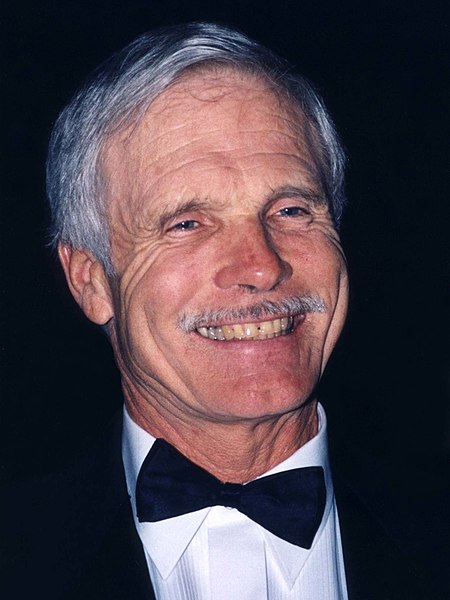
Ted Turner
Image Credit: Kingkongphoto & www.celebrity-photos.com from Laurel Maryland, USA, CC BY-SA 2.0
Boycott
Six years before the Goodwill Games were due to take place, Walter Mondale, vice president of the United States, delivers a speech in Colorado Springs on April 12, 1980. He calls for a boycott of the Moscow Olympics that year, because of the Soviet Union’s invasion of Afghanistan at the end of 1979.
‘To show the Soviet Union that it cannot invade another nation and still conduct business as usual with the United States, our country has embargoed 17 million tons of grain, tightened controls on high technology trade, limited Soviet fishing in our waters, raised our defense budget to upgrade all aspects of our forces, strengthened our naval presence in the Indian Ocean, intensified development of our rapid deployment forces, and offered to help other sovereign states in the region to maintain their security.’
It is two months after the Winter Olympics were held in Lake Placid. Calls at that event to postpone the Moscow Games did not lead to the desired result. Mondale tries to persuade the American Olympic Committee to a boycott.
‘(…) the President, the Congress, and the American people understand that a world which travels to the Moscow games devalues its condemnation and offers its complicity to Soviet propaganda. I am convinced that the American people do not want their athletes cast as pawns in that tawdry propaganda charade.’
It works. The United States is not coming to Moscow. Four years later, it is Russia’s turn not to come to the Los Angeles Olympics.
According to Hans van Koningsbrugge, professor of Russian history and politics, the road to organize the Goodwill Games was paved by Mikhail Gorbachev. “
There was a reason Margaret Thatcher said: ‘With him we can work together.’ Gorbachev created a new political understanding and gave the opposing blocs a perspective to try to do something with each other. Sport is the perfect means for that.”
Making money
Besides goodwill and idealism, two other motives ran through Turner’s mind. He wanted content for his television station, Turner Broadcasting Service (TBS). By organizing his own event and broadcasting it himself, the shrewd businessman could earn money. After all, he owned the event, in an unusual combination of capitalism and communism. As for the Soviet Union, Gosteleradio (a state radio and television company) and Soyuzsport (the ministry of sports) participated in organization and finance. The costs would be around 87 million dollars, the revenues could reach 100 million dollars.
In addition to just making money, Turner also wanted to make sure that both the Russians and the Americans would be there again in 1988 as the Olympic Games in South Korea. Jos Vaessen also noticed the latter. The Dutchman, former director of the TT Assen and former chairman of football club Vitesse, was at the Goodwill Games as official of the obscure, but popular sport of motoball in the Eastern Bloc at the time. Football on motorbikes. “The United States and the Soviet Union should not lose face. Who will be the first to end the boycott? There was only one answer to that: both at the same time. That seemed to me to be the greater purpose behind the Goodwill Games. You could tell from the atmosphere that great performances were not achieved everywhere in the stadiums. It was really goodwill.”
Turner, 47 in 1986, had won the America’s Cup as a sailor and considered the world his playground. The magnate couldn’t bear the idea that political hostility would stand in the way of great sports performance and experiences. “It was definitely in the back of Ted Turner’s mind to make sure everyone would participate again in 1988,” Plant said.
“Big dogs”
But the relationship with the International Olympic Committee was not exactly optimal. The IOC saw a danger in the Goodwill Games, even in the later years that the event continued to exist. “And we really didn’t understand that,” says Plant. “It was an initiative to perhaps get the Russians and Americans back together at the Olympics. I have also addressed the IOC about it. “If you’re the kings of global sport, isn’t it great if there are more events to promote that? You will always be the ‘big dog’, but it doesn’t help the development of the sport if you are the only dominant player.’”
Ben Johnson
The Goodwill Games strongly appealed to an Olympic feeling. An opening ceremony, nations competing against each other, a medal tally. Everything radiated the Olympic Games, in the form of a new (and according to organizers temporary) event to help international sport and indirectly politics. At the event, the good and the remarkable sports performances alternated. In basketball, the US women’s team made history by beating the Soviet Union, a victory that ended a run of 152 for the Russian team in international competitions. Soviet swimmer Vladimir Salnikov swam a world record in the 800 meters on opening day, Canadian Ben Johnson (who would become world famous in 1988) beat American Carl Lewis in the 100 meters athletics.
The European Broadcasting Union (EBU) boycotted the event, for Europeans it was difficult to see, hear or read about the Games. In the United States, although the event was broadcast on Ted Turner’s TBS, commercial success was not forthcoming as well.
“We made a loss of around $40 million,” Mike Plant recalls. “I thought that was awful, but Ted wasn’t too concerned. He urged me not to lose sight of the big picture: show the world that we can sport together instead of pointing bombs at each other. “In the movie world, we lose 40 million in a weekend to a bad movie. At least this will bring in something, even if it’s not money,” he said.”
In the US, too, the attention was not overwhelming. As a former speed skater (Plant was there in 1980 in Lake Placid) and chef de mission of the American Olympic team in Vancouver 2010, Plant knows that the Olympic Games in particular attract attention in the United States.
“There is only one medal for (American) athletes: the Olympic one. I know that because I’ve been to the Olympics as a skater, although I didn’t come close to a medal haha… But I know the power of that event. It is so special for athletes. And for spectators and viewers too. Swimming and gymnastics, for example, are very big during the Games, but nobody looks at those sports if they’re not at the Olympics.”

Mike Plant as CEO of the Goodwill Games 1998
Credit: Discover the Games/Walter Templeman
Fall of the Berlin wall
Not even at the Goodwill Games. The event has had several editions since 1986. Seattle (1990), Saint Petersburg (1994), New York (1998), Lake Placid (2000, winter edition), Brisbane (2001) followed. With the fall of the Berlin Wall in 1989, the collapse of the Soviet Union changed the character of the event. “The relationship with the Russians became less relevant. An event to show that we could sport together as a peaceful example was no longer necessary. We changed to an event where athletes could show themselves to the world in a top multi-sport event.”
And where they could earn money. The prize money went up (6 million dollars in New York, Plant’s first year as director), the format changed. Plant:
“We didn’t do any heats, for example. 100 meters athletics? One race, the best athletes in one final. I abolished ten sports that yielded nothing. We were moving in the right direction because we went from a $44 million loss in 1994 to a $14 million loss four years later. We had agreements with Salt Lake City, Phoenix and Calgary for years to come. Summer and winter games, but the shareholders didn’t want any more. It stopped.”
More than a decade after the Cold War drove away out of the minds of the world’s population, another Goodwill Games was held in 2001, in Brisbane, Australia. For an event that was set up to build goodwill and to dispel the sports boycotts, it has gone on for a long time. And whether the Goodwill Games has succeeded in its intent? Plant does not speak out directly, but secretly thinks so: “The sporting consequences, that everyone was there again in Seoul in 1988, will probably be a more direct consequence of the Goodwill Games. But who knows, it may also have helped politically. That would be nice.”
Orginal article on www.DiscovertheGames and published here by kind permisson of Walter Tempelman

